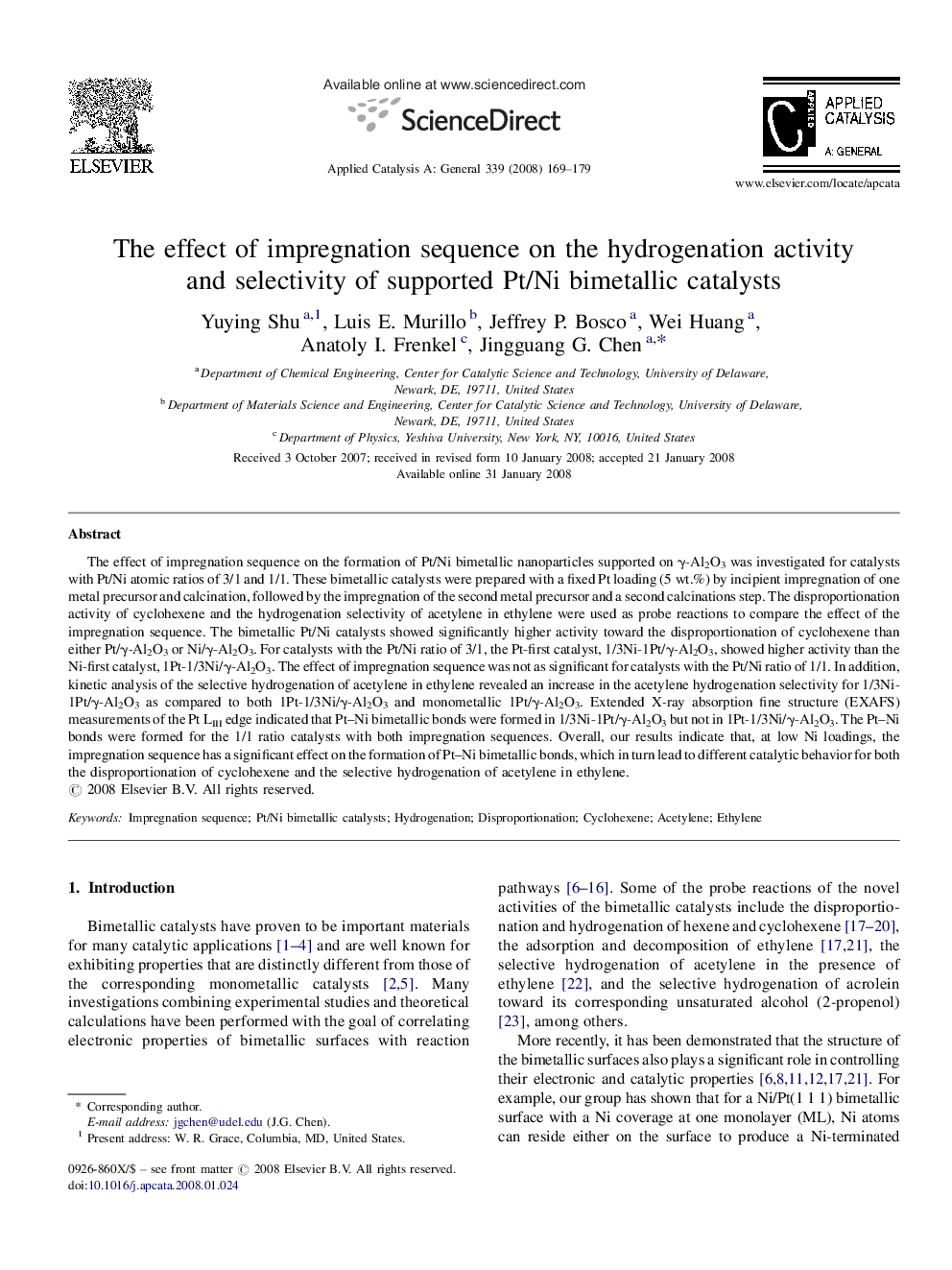| Article ID | Journal | Published Year | Pages | File Type |
|---|---|---|---|---|
| 43312 | Applied Catalysis A: General | 2008 | 11 Pages |
The effect of impregnation sequence on the formation of Pt/Ni bimetallic nanoparticles supported on γ-Al2O3 was investigated for catalysts with Pt/Ni atomic ratios of 3/1 and 1/1. These bimetallic catalysts were prepared with a fixed Pt loading (5 wt.%) by incipient impregnation of one metal precursor and calcination, followed by the impregnation of the second metal precursor and a second calcinations step. The disproportionation activity of cyclohexene and the hydrogenation selectivity of acetylene in ethylene were used as probe reactions to compare the effect of the impregnation sequence. The bimetallic Pt/Ni catalysts showed significantly higher activity toward the disproportionation of cyclohexene than either Pt/γ-Al2O3 or Ni/γ-Al2O3. For catalysts with the Pt/Ni ratio of 3/1, the Pt-first catalyst, 1/3Ni-1Pt/γ-Al2O3, showed higher activity than the Ni-first catalyst, 1Pt-1/3Ni/γ-Al2O3. The effect of impregnation sequence was not as significant for catalysts with the Pt/Ni ratio of 1/1. In addition, kinetic analysis of the selective hydrogenation of acetylene in ethylene revealed an increase in the acetylene hydrogenation selectivity for 1/3Ni-1Pt/γ-Al2O3 as compared to both 1Pt-1/3Ni/γ-Al2O3 and monometallic 1Pt/γ-Al2O3. Extended X-ray absorption fine structure (EXAFS) measurements of the Pt LIII edge indicated that PtNi bimetallic bonds were formed in 1/3Ni-1Pt/γ-Al2O3 but not in 1Pt-1/3Ni/γ-Al2O3. The PtNi bonds were formed for the 1/1 ratio catalysts with both impregnation sequences. Overall, our results indicate that, at low Ni loadings, the impregnation sequence has a significant effect on the formation of PtNi bimetallic bonds, which in turn lead to different catalytic behavior for both the disproportionation of cyclohexene and the selective hydrogenation of acetylene in ethylene.
Graphical abstractThe self-hydrogenation activity of cyclohexene and the hydrogenation selectivity of acetylene in ethylene were used as probe reactions to compare the effect of the impregnation sequence in bimetallic Pt/Ni catalysts supported on γ-alumina. Our results indicate that, at low Ni loadings, with a Pt/Ni atomic ratio of 3/1, the impregnation sequence has a significant effect on the formation of PtNi bimetallic bonds, which in turn lead to different catalytic performance.Figure optionsDownload full-size imageDownload as PowerPoint slide
